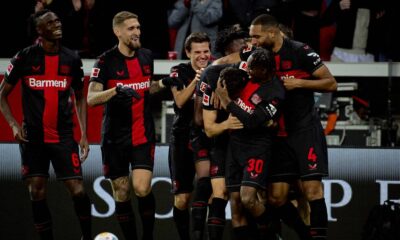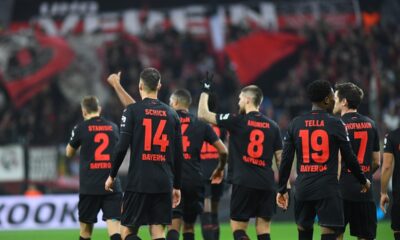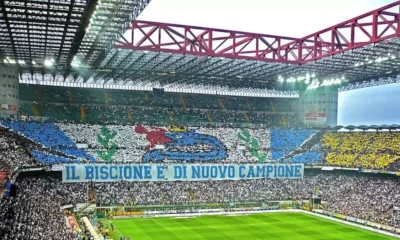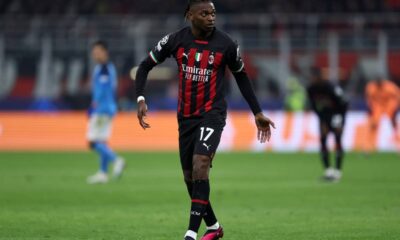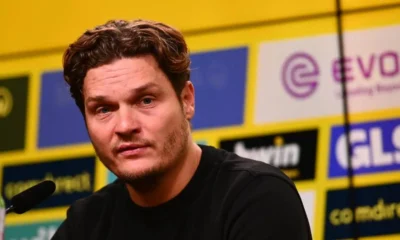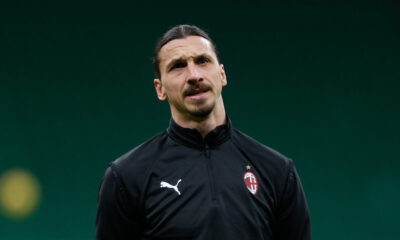Champions League
Tales of the Faithful: Paolo Maldini has never worn anything but a red and black jersey. With AC Milan he conquered football Europe
Paolo Maldini is undoubtedly one of AC Milan’s greatest legends. The former Italian left-back has never worn anything but the red and black jersey in his entire professional career. It lasted an impressive 25 years, during which Maldini won a total of 26 trophies! In short, he had a truly golden time with AC Milan.
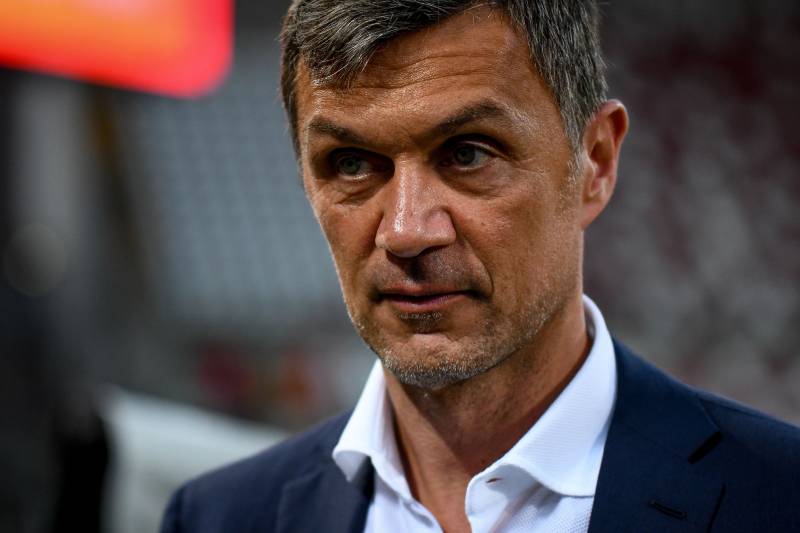
Paolo Maldini is undoubtedly one of AC Milan’s greatest legends. The former Italian left-back has never worn anything but the red and black jersey in his entire professional career. It lasted an impressive 25 years, during which Maldini won a total of 26 trophies! In short, he had a truly golden time with AC Milan.
Maldini first appeared in an A-team jersey in 1985, making his debut under coach Nils Liedholm. Back then, as a 16-year-old, he replaced the injured Sergio Battistini in a match against Udinese.
It should be added, he made only one start in a Milan jersey that season. However, from the following season, at the age of 17, he became a member of the starting eleven. And from then on he wore the number 3 jersey, which was also worn by his father Cesare. He was still playing on the right side of the defence, only later being moved to the left side due to his ability.
However, his career gained momentum from the 1987/88 season when he won his first Scudetto with AC Milan. AC Milan were coached by Arrigo Sacchi, whose squad was then nicknamed “The Immortals”. The Dutch attacking trio of Frank Rijkaard, Ruud Gullit and Marco van Basten is simply unforgettable.
Also with midfielders like Carlo Ancelotti or Roberto Donadoni. Maldini, along with Franco Baresi, Alessandro Costacurta and Mauro Tassotti, formed one of the strongest defences of all time. Apart from the title itself, AC conceded only 14 goals in the 1987/88 season, Maldini became the best defender in Italy.
The following season, Maldini won the 1988 Supercoppa Italiana with Milan and followed this trophy up with European Cup titles in 1988-89 and 1989-90. In short, the Rossoneri were at their peak during these times, conquering almost one European trophy after another.
Italian Super Cup, European, domestic titles, Intercontinental Cup championships – AC Milan were one of the very hard teams to beat during the Sacchi era. However, despite all the success, the 1990/91 season was his last before he was replaced by Fabio Capello in the following years.
Unbeatable
Even under the English coach, AC were still the dominant side not only in Italy, but also in the whole of Europe. Maldini helped his team to four more titles and three Champions League finals during the “The Invincibles” era, of which AC managed to win only one. In the final, the Rossoneri beat Barcelona 4-0.
Maldini scored his first goal in European competition on 21 October 1992 against Slovan Bratislava.
The following season, Milan won the Serie A title for the third consecutive season, with Maldini and co. conceding just 15 goals in the whole season and having the best defence in the league. After winning a third Champions League title and reaching the 1994 World Cup final in the USA, Maldini became the first defender in history to receive the World Soccer Magazine’s award for the best player in the world.
AC Milan captain
By the end of the millennium, Milan’s great club had experienced a decline from glory in terms of performance. Following the departure of coach Capello and several key players. In 1996, Milan lost the Supercoppa Italiana, and also finished as early as the Champions League group stage between 1996 and 1997. After the retirement of Franco Baresi and Mauro Tassotti after the 1996-97 season, Maldini was appointed Milan captain.
He and his colleagues reached the Coppa Italia final in 1998, where they lost to Lazio Roma. However, they did not have to be so sorry, as the Rossoneri won another Serie A title in 1998/99. This was under the leadership of Alberto Zaccheroni. But in the following years, there was a setback and an even bigger drop in performance.
In the 1999-2000 season, AC lost the Supercoppa Italiana to Parma, finished third in Serie A and placed last in the Champions League group. The following season, Milan crashed out in the second round of the Champions League and finished sixth in Serie A, failing to qualify for the Champions League, and participated in the UEFA Cup the following season.
Thus, Maldini did not have a glittering time with the Rossoneri, and the Italian national team did not bring success to the legendary defender either. At the 1996 European Championships Italy finished in the group stage, and at the 1998 World Cup in France the Italians finished in the quarter-finals.
The Carlo Ancelotti era
In 2001, however, Carlo Ancelotti was confirmed as the new coach of AC Milan, who fulfilled the role of head coach of the Italian big club until 2009. And during that time, the golden winning era returned to Milan in part. Although the Rossoneri won only one Serie A title, they added two Champions League championships, plus a final appearance.
AC also recorded one win each in the Coppa Italia and Supercoppa Italiana, and they dominated the UEFA Super Cup in 2003 and 2007. While winning the Intercontinental Cup eluded the men in red and black, the 2007 Club World Cup title also counts.
The whole team was behind these successes, of course, but they were brilliantly led on the pitch by captain Maldini. The individual awards are proof of this. In 2002, Maldini was awarded the Premio Nazionale Carriera Esemplare “Gaetano Scirea.” In 2003, Maldini came third in the Ballon d’Or for the second time in his career.
Maldini was also included in the 2004 FIFA 100 list, a selection of the 125 best living footballers chosen by Brazilian legend Pelé. The now fifty-four-year-old former full-back was also voted Serie A Defender of the Year that same year.
16. on 1 February 2008, the Milan native made his 1000th career professional start in a match against Parma. Of these, 861 were in a Milan jersey, 12 in the Italian Under-21 national team, 1 in the Italian Olympic team and 126 in the senior Italian national team.
End of career
Maldini played his last Champions League match on 4 March 2008, when Milan lost 0-2 to Arsenal in the semi-final at the San Siro, knocking AC out of the 2007-08 Champions League. In 2008, Maldini was awarded the FIFA Order of Merit as well as the Premio Internazionale Giacinto Facchetti, which is awarded to a player who has demonstrated ability and a spirit of fair play during his career.
On 18 April 2009, Maldini announced that he would retire at the end of the 2008-09 season. And it is with his end that the end of the Ancelotti era can be linked. 17. on May 2009, Maldini played his 900th match in an AC jersey, specifically against Udinese. He played his last game at the San Siro as an active player on 24 May.
He played his final game, which closed Maldini’s career, on 31 May 2009, and was still enjoying a 2-0 win against Fiorentina.
In the language of numbers and success…
Maldini is undoubtedly one of the best defenders not only of AC Milan, but also of Italian football itself. Thus, the bottom line is that the now former Rossoneri left back played 901 games in the red and black jersey and, in addition to his excellent defensive work, he also scored 33 goals and 44 assists.
With AC he won seven championship titles and five Champions League titles (plus PMEZ – ed.). But in addition, he also won the Club World Cup once, the Coppa Italia once, the UEFA Super Cup four times, the Italian Super Cup five times and the Intercontinental Cup twice with Milan.
He was the captain of AC Milan, but for eight years he fulfilled this role in the Italian national team. With Italy he participated in four World Cups and three European Championships, with his greatest international achievements including the 1994 World Cup final in the USA and another final appearance at Euro 2000. Maldini has made a significant mark in the history of the Milan Grand Slam, together with Baresi, Costacurta and Baresi they formed one of the strongest defences in football history.
Serie A, AC Milan, Transfermarkt

